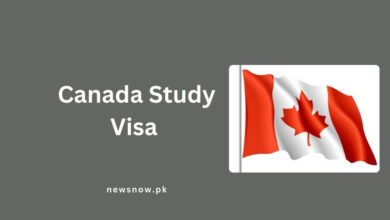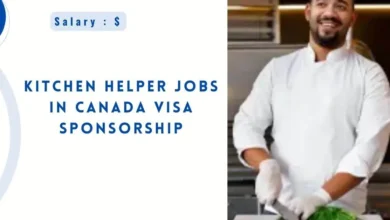USA Study Visa 2026 – Applications with Social Media Review
If you’re planning to study in the United States on an F-1, M-1, or J-1 visa, it’s important to know that your social media presence over the past five years is now a routine part of the U.S. visa vetting process.
Understanding how to manage your social media accounts honestly and carefully can prevent avoidable delays or denials in your visa application.
Social Media Vetting Matters:
Since 2019, the U.S. Department of State requires most visa applicants to disclose all social media usernames (handles) used within the past five years. This is part of the DS-160 (nonimmigrant visa) or DS-260 (immigrant visa) application form.
The purpose is to:
- Verify applicant identity
- Assess eligibility and admissibility under U.S. immigration law
- Identify national security or public safety risks
According to the U.S. Embassy in Mexico, consular officers may review your social media to ensure the information you provide is consistent and truthful. While setting accounts to public may assist officers during processing, there is no official requirement that accounts must be public.
Read Also: Swiss Visa Appointment System in New York – Apply Today
Things to do Before Visa Interview:
1. Review Your Social Media Profiles
- Make sure usernames, profile names, and photos match your identity as listed on your passport and application.
- Remove any content that could be misleading or impersonating (e.g., fake accounts).
- Avoid posting or reposting anything that could raise security or legal concerns, such as:
- Content supporting extremist ideologies
- Hate speech or threats
- False identities or misleading affiliations
2. List All Social Media Platforms on the DS-160
- Be truthful and complete. Include all platforms you’ve used in the past five years—Facebook, Instagram, Twitter (X), TikTok, LinkedIn, etc.
- Even if the account is inactive or barely used, do not omit it.
- Listing false usernames or hiding accounts can lead to visa refusal or future ineligibility.
3. Decide on Your Privacy Settings
- Some consulates may suggest applicants temporarily make accounts public to facilitate the review process.
- However, this is not a formal requirement from the U.S. government. Use your best judgment.
- Do not delete or deactivate accounts shortly before applying—it can be seen as suspicious.
Mistakes to Avoid:
- Deleting social media accounts during the application process
- Creating fake accounts to hide real profiles
- Listing inaccurate or incomplete handles on the application form
- Engaging in or displaying controversial activity that may be flagged during review
Unability to get visa appointment:
If you’re unable to get a visa appointment in time for your academic program start date:
For June or July Start Dates:
- You may request an expedited appointment through your local U.S. Embassy or Consulate’s online portal.
- Upload a valid reason along with your Form I-20 (F/M visas) or DS-2019 (J visa).
For August or Later Start Dates:
- Keep checking the scheduling system regularly. New slots often open.
- Be patient, and prepare your documents in advance to book as soon as a slot becomes available.
Helpful References:
Benefits:
- Enhanced Transparency
Applicants who provide honest, verifiable information gain the trust of U.S. consular officers, which can improve application outcomes. - Faster Identity Verification
Social media profiles help officers quickly verify names, photos, and life details that match visa application data. - Increased Credibility
Clean, consistent online profiles support the applicant’s credibility and demonstrate good digital behavior. - Stronger National Security
The review process helps ensure that visa approvals are granted only to individuals who pose no security risks. - Faster Application Processing (in some cases)
Applicants who follow best practices (e.g., full disclosure, public profiles when advised) may experience fewer delays. - Proof of Genuine Intent
Social media activity showing ties to education, family, or future career plans supports claims of non-immigrant intent. - Educational Opportunity Protection
Prevents fraudulent applications, thereby safeguarding slots for genuine students at U.S. institutions. - Encourages Digital Responsibility
Applicants become more mindful of their digital footprint, promoting responsible use of online platforms.
Summary of Improvements Made:
| Area | Original | Updated Version |
|---|---|---|
| Accuracy | Unverified claim about June public accounts | Clarified that it’s not an official policy |
| Expertise | No cited authority | Included official embassy & Department of State links |
| Transparency | No author disclaimer | Added disclaimer for legal clarity |
| Reader Value | General tips only | Included examples, links, and structured guidance |
| SEO Title | Vague | Clear and keyword-rich for user intent |
Frequently Asked Questions:
Do I need to include private messaging apps like WhatsApp or Telegram?
No. You only need to list social media platforms used for public interactions—not private communication apps unless specifically asked by consular officers.
Is it okay to delete old posts or accounts before applying?
It’s not advisable to delete accounts right before or during the application process. It could raise suspicion or appear as an attempt to hide something.
Instead, review your profiles and correct misleading or impersonating content.Do U.S. student visa applicants need to provide social media details?
Yes, most nonimmigrant visa applicants (including F-1, M-1, and J-1) must list all social media handles used in the past five years on the DS-160 application form.




